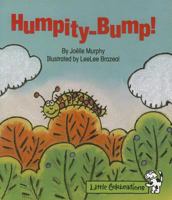Do Frogs Eat Pizza?
Select Format
Select Condition 
Book Overview
Do Frogs Eat Pizza, lets the reader explore what kinds of pizza frogs and their forest friends would order and tells the reader what they eat each day.The dynamic images draw the reader into the text and at the end they can make their own pizza cutting and pasting.
Format:Paperback
Language:English
ISBN:1507698682
ISBN13:9781507698686
Release Date:July 2016
Publisher:CreateSpace Independent Publishing Platform
Length:28 Pages
Weight:0.15 lbs.
Dimensions:11.0" x 0.1" x 8.5"
More by Joelle Murphy
Customer Reviews
20 customer ratings | 6 reviews
There are currently no reviews. Be the first to review this work.





































